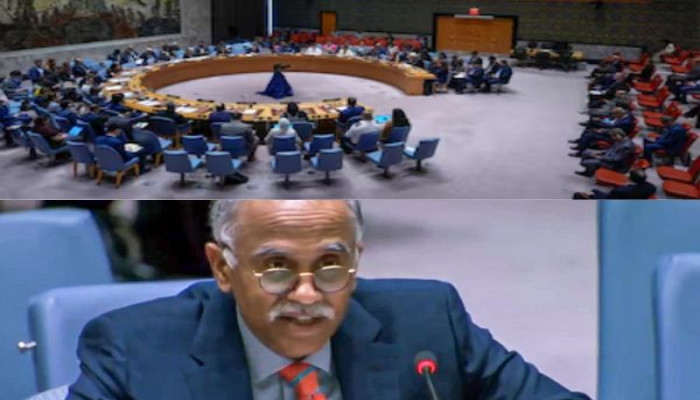‘Christmas tree mandates must be avoided’: India pushes for major reforms in UNSC
- In Reports
- 07:43 PM, Nov 15, 2025
- Myind Staff
India's Ambassador to the United Nations, Parvathaneni Harish, urged the UNSC to carry out reforms that make it more representative and effective, and he stressed that transparency, accountability, and inclusion are essential while pointing to India's long-standing role in UN peacekeeping.
Speaking at the UNSC Open Debate on Working Methods on Friday, Harish said, "The Security Council is central in the UN architecture, as the principal organ that is primarily tasked with the responsibility of maintenance of international peace and security. As a UN organ whose sphere of functions covers a range of areas, but membership is limited to only 15 members, the working methods of the Security Council are critical to its credibility, efficacy, efficiency and transparency. This gains particular salience in a world beset with multiple crises and facing numerous challenges."
He said that India wants more open and fair procedures for choosing the chairs of subsidiary bodies and pen-holderships, and added, "Selection of Chairs of subsidiary bodies and pen-holderships needs to be carried out in a more transparent, objective and time-bound manner. Chairs and pen-holderships are privileges that come with major responsibilities. Discussions in the Council on the distribution of Chairs and pen-holderships must prevent Council members with vested interests from being accorded these privileges. Obvious and outright conflicts of interest can have no place in the Council."
This comes as Pakistan holds the vice chair of the UNSC Counter Terrorism Committee along with France and Russia, and as a non-permanent member for the 2025 to 2026 term, it was also appointed in July as the Chair of the Taliban Sanctions Committee.
India called for simpler mandates, more resources, and regular input from Troop Contributing Countries (TCCs) and Police Contributing Countries (PCCs), and said that when peacekeeping mandates expand, the resources must grow as well.
"Peacekeeping is an important United Nations Security Council domain. As the largest cumulative troop contributor, India stresses the need for factoring in the inputs of the TCCs and PCCs for better implementation of peacekeeping mandates. This must be a consultative exercise. Christmas tree mandates must be avoided, and peacekeeping missions must revert to having plain vanilla mandates," added Harish.
Harish also said that the Council's old structure and outdated procedures are clearly visible, and he noted that India is ready to help with reforms but stressed that small adjustments will not be enough, and the Council must change in a way that reflects current global power balances and gives fair space to underrepresented regions.
"I urge the Council to undertake necessary measures on this front to bring about sunset clauses. Matters on which the Council is seized are also to be reviewed from time to time on the basis of their relevance and utility," said the Indian envoy.
"There must be greater transparency in the functioning of the subsidiary organs. A case in point is the manner in which listing requests are rejected. Unlike de-listing decisions, these are done in a rather obscure manner, with member states that are not on the Council not being privy to details. There must be greater coordination of the Council with other UN organs, particularly the UNGA. A useful tool in this regard is the discussion of the annual United Nations Security Council (UNSC) report in the GA. However, this must not be treated as a mere procedural exercise. The report must be more than a record of the Council proceedings and meetings during the year. India reiterates its call to make the annual United Nations Security Council report analytical in nature," he added.
Harish said that Africa must be included in the permanent category to fix historical imbalances, and he echoed the views of many UN members who want a Council that is more fair and more effective.
"India would like to emphasise that addressing historical injustices to Africa in the Security Council, given the representation of three out of the ten non-permanent members from the region, is primarily through Africa's inclusion in the permanent category. Mere expansion of the non-permanent category would not only not result in meaningful reform but also fail to address historical injustices to Africa," he added.
He closed by saying that India is prepared to support efforts to modernise the Council and make it stronger and better suited to the realities of the present world.







Comments